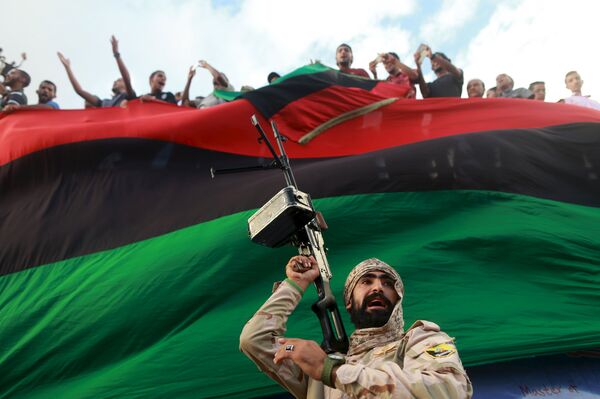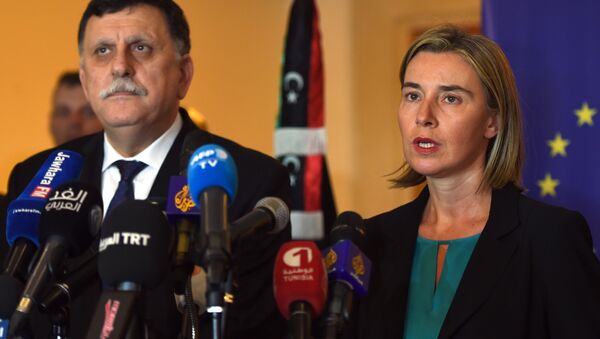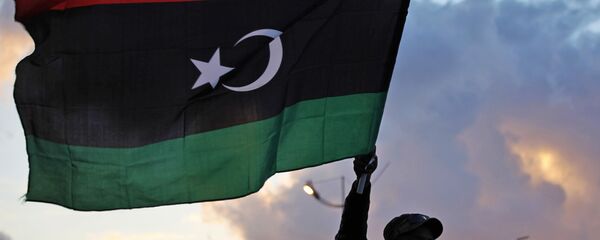During her visit, Mogherini plans to meet the newly announced Libyan Prime Minister designate Fayez al-Sarraj and Presidency Council members to "start working with them on the concrete EU support to the Government of National Accord and to the Libyan people".
Meeting the Libyan Presidency Council and the Prime Minister designate tomorrow in Tunis: https://t.co/ruvTwilFct #Libya
— Federica Mogherini (@FedericaMog) January 7, 2016
The meeting comes after rival parties signed a UN-brokered agreement to form a national unity government on December 17.
Libya’s internationally recognized government – that had been forced to flee from the capital Tripoli to the eastern city of Tobruk – last month came to an agreement with Islamist-backed rebels known as the Libyan Dawn, who had seized the capital and set up an alternative parliament in 2014.
The attack in #Libya shows how urgent it is to set aside divisions and work together to fight terrorism, united https://t.co/OovsoSBAAf
— Federica Mogherini (@FedericaMog) January 7, 2016
It is hoped the agreement will help end a four-year civil war in the country and can provide Libyans with a united front against Daesh, who have taken control of large swathes of territory in the country.
Concerns Over Western Help
Many have supported the EU’s decision to become actively involved in generating support for the new government, however there are concerns that others in the West may be less likely to help in the fight against Daesh.
Following the removal of former leader Muammar Gaddafi, who was killed by rebel groups working alongside NATO forces, many criticized NATO for not having a satisfactory exit plan to ensure a stable transition into democracy for the country.
NATO Secretary General Jens Stoltenberg described the December 17 unity government deal as "a significant step on the road to bring peace and stability to the people of Libya".
However the military alliance is yet to back the fledgling government and commit supplies to help the fight against terrorists operating in Libya.
Egyptian President Abdel Fattah El-Sisi has been among those critical of NATO and the US for not supporting the Tobruk-based Libyan government throughout the civil war, saying earlier this year that "there is a legitimate [Libyan] government and that government is denied the weapons it needs to confront terrorists".

El-Sisi said that while he supported the NATO intervention to overthrow Gaddafi in 2011, the West failed to implement a proper strategy in the aftermath.
"The NATO operation in Libya was not complete, which led the North African country to fall under the control of militant and extremist groups. We abandoned the Libyan people to extremist militias."



